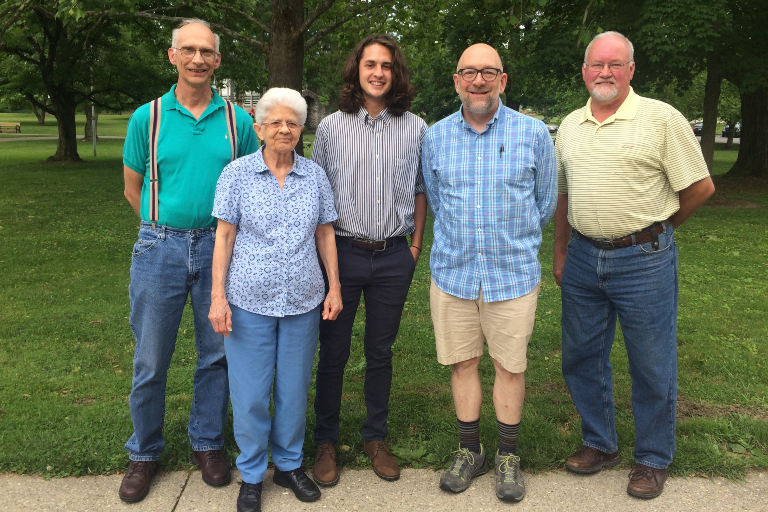Oldenburg Renewable Energy Commission members recently completed an inventory of greenhouse gas emissions and presented their findings to Oldenburg Town Council members Nov. 4.
Inventory Team members Mike Cambron, Dr. Steve Kristoff and Sister Claire Whalen explained the process.
“A greenhouse gas is a gas that traps heat in the Earth’s atmosphere ...(and) is responsible for the rising temperatures,” Kristoff said. The primary greenhouse gases are carbon dioxide, methane, nitrous oxide, ozone and water vapor.
“Why would we do this inventory? It gives us a place to start. We want to decrease our carbon footprint, but that’s too vague of a goal, so we came up with a new goal of reducing the carbon dioxide equivalent (which indicates when other greenhouse gases are included in total along with carbon dioxide) by 50% by 2030. This is a pretty ambitious goal, so we have to know where we’re starting.
“This was a communitywide study, but it does not include government buildings and services (unless indicated). We worked all summer on this. We decided to go with 2017 data because that was the latest year we had complete data for.” Oldenburg was the smallest town among 13 other Indiana cities participating in this statewide project through a grant from Indiana University’s Environmental Resilience Institute.



